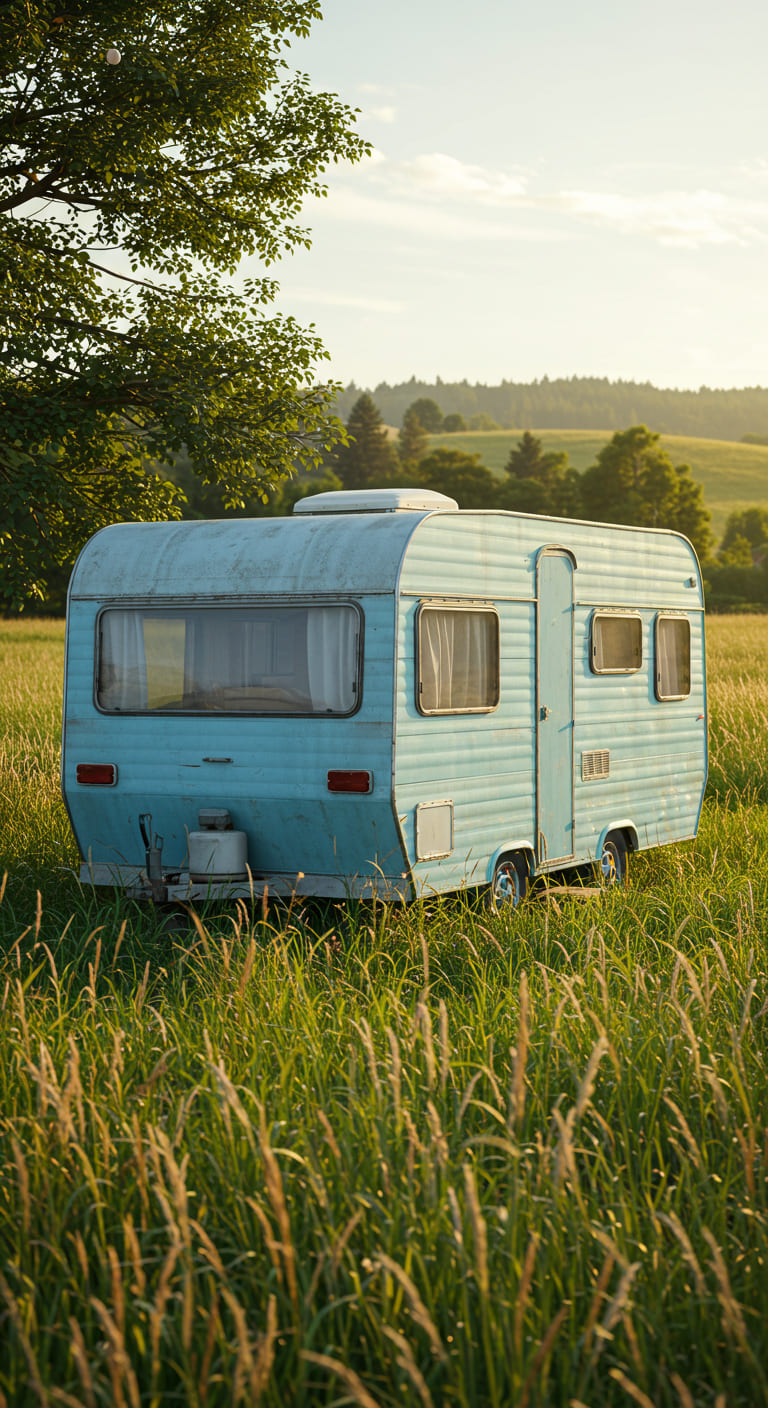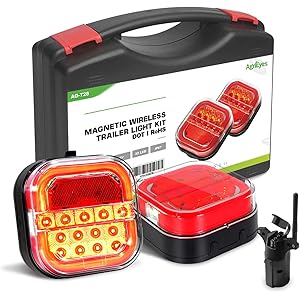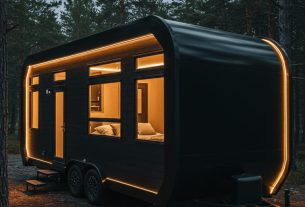When I first heard the term “mobile home,” I must admit, I had a narrow perception of what it entailed. I envisioned a small, simple structure that could be easily transported, often associated with a transient lifestyle. However, my journey into the world of mobile homes has revealed a wealth of information that transformed my understanding. In this article, I invite you to explore the full meaning of mobile homes, their history, benefits, challenges, and why they are becoming an increasingly popular housing option in today’s world.
The Definition of Mobile Home
At its core, a mobile home is a prefabricated structure that is built in a factory and then transported to a site for use as a residence. According to the U.S. Department of Housing and Urban Development (HUD), a mobile home is defined as a dwelling that is built on a chassis and designed to be moved. More specifically, the term “mobile home” applies to homes built before June 15, 1976. After this date, the industry transitioned to what is now known as “manufactured homes,” which are built to more stringent federal standards.
The Evolution of Mobile Homes
The history of mobile homes dates back to the early 20th century. Initially, these homes were constructed as travel trailers, providing a means for people to enjoy the great outdoors without compromising on comfort. Over the decades, the design and construction of mobile homes evolved significantly, leading to the more spacious and affordable manufactured homes we see today.
- 1920s: The first travel trailers emerged, offering minimal living space for families on the go.
- 1940s: Post-World War II, housing shortages led to a boom in mobile home production, providing affordable housing options.
- 1976: The establishment of HUD standards transformed mobile homes into safer and more durable manufactured homes.
- 2000s: Modern designs incorporate energy-efficient technologies and stylish interiors, making mobile homes an appealing option for many.
Why Choose a Mobile Home?
Having explored the definition and history, you might be wondering why anyone would choose to live in a mobile home. Here are some compelling reasons:
- Affordability: Mobile homes offer a cost-effective housing solution, often priced significantly lower than traditional homes.
- Flexibility: With the ability to relocate, mobile homes provide flexibility for those who may need to move for work or personal reasons.
- Community Living: Many mobile home parks foster a strong sense of community, where residents can build lasting friendships.
- Less Maintenance: Generally, mobile homes require less upkeep compared to traditional houses, allowing for more leisure time.
- Energy Efficiency: Modern mobile homes are designed with energy efficiency in mind, resulting in lower utility bills.
Common Misconceptions About Mobile Homes
Despite the many advantages, misconceptions about mobile homes persist. Here, I’ll address some common myths:
- Low Quality: Many believe mobile homes are poorly constructed. However, modern manufactured homes adhere to strict building codes, ensuring safety and durability.
- Limited Space: While some mobile homes are smaller, many models offer spacious layouts comparable to traditional homes.
- Transient Living: People often associate mobile homes with a transient lifestyle, but many residents live in their mobile homes long-term, creating stable communities.
Mobile Homes vs. Traditional Homes
When comparing mobile homes to traditional houses, several factors come into play:
- Cost: Mobile homes are generally more affordable, with prices that can be half or less than that of traditional homes.
- Customization: While traditional homes can be customized, many mobile homes also offer various design options to suit individual tastes.
- Land Ownership: Mobile homes can be placed on rented land or owned lots, providing different ownership experiences compared to traditional homes.
- Appreciation Value: Generally, traditional homes appreciate over time, while mobile homes may depreciate in value; however, location and market demand play significant roles.
Financing a Mobile Home
Financing a mobile home can be different from securing a mortgage for a traditional home. Here are some key points to consider:
- Types of Loans: Various loan options are available, including FHA loans, VA loans, and conventional loans for manufactured homes.
- Down Payments: Down payment requirements can vary, with some loans requiring as little as 3.5% down.
- Interest Rates: Interest rates for mobile homes may be higher than traditional mortgages, so it’s essential to shop around.
- Credit Scores: Lenders typically require a good credit score to qualify for financing, so be sure to check your credit before applying.
Challenges of Mobile Home Living
While mobile homes present numerous benefits, they also come with challenges that potential buyers should be aware of:
- Depreciation: As mentioned earlier, many mobile homes depreciate in value unless located in a high-demand area.
- Land Lease Issues: Living in a mobile home park can lead to challenges if the landowner decides to raise rent or sell the property.
- Resale Difficulties: Reselling a mobile home can be more complicated than selling a traditional home due to financing options for buyers.
- Regulations: Different states have various regulations for mobile homes, which can impact installation and living conditions.
Success Stories: Inspiring Mobile Home Transformations
To further illustrate the potential of mobile homes, let’s take a look at some inspiring success stories:
- The Tiny House Movement: Many individuals have embraced the tiny house movement by converting mobile homes into stylish, minimalist living spaces.
- Eco-Friendly Conversion: Some mobile homeowners have transformed their homes into eco-friendly havens, incorporating solar panels and sustainable materials.
- Community Revitalization: In certain regions, communities have banded together to rejuvenate mobile home parks, enhancing living conditions and fostering a sense of belonging.
Statistics You Should Know
To underscore the growing trend of mobile home living, consider the following statistics:
- According to the U.S. Census Bureau, nearly 20 million Americans live in manufactured homes.
- Research from the Manufactured Housing Institute indicates that manufactured homes are typically 35% less expensive than site-built homes.
- Approximately 60% of manufactured homes are located in land-lease communities, which provide residents with a sense of community and amenities.
Mobile Home Maintenance Tips
Maintaining a mobile home is crucial to ensure its longevity and functionality. Here are some essential maintenance tips:
- Regular Inspections: Conduct routine checks on your roof, plumbing, and electrical systems to catch any issues early.
- Skirting Maintenance: Ensure the skirting around your mobile home is intact to protect against pests and weather elements.
- HVAC Care: Schedule regular maintenance for your heating and cooling systems to ensure optimal performance.
- Exterior Care: Clean gutters and ensure proper drainage around your home to prevent water damage.
Frequently Asked Questions (FAQ)
1. Are mobile homes safe to live in?
Yes, modern manufactured homes are built to rigorous safety standards set by HUD, making them safe for long-term living.
2. Can I get a mortgage for a mobile home?
Yes, financing options are available, including FHA and VA loans specifically for manufactured homes.
3. What is the difference between a mobile home and a manufactured home?
The term “mobile home” is used for homes built before June 15, 1976, while “manufactured home” refers to those built to HUD standards after that date.
4. Can I place a mobile home on my own land?
Yes, you can place a mobile home on your own land, provided you comply with local zoning laws and regulations.
Conclusion
As I reflect on my journey through the world of mobile homes, it becomes evident that these structures represent much more than mere housing options. They embody a lifestyle choice that prioritizes affordability, flexibility, and community living. While challenges exist, the benefits and success stories surrounding mobile homes highlight their potential to provide a fulfilling living experience. If you’ve ever considered a mobile home as a viable housing solution, I encourage you to delve deeper, explore your options, and join the growing conversation about the future of mobile home living.
Don’t forget to sign up for our newsletter for more insights and updates, and feel free to share this article with friends and on social media. Let’s spread the word about the myriad possibilities that mobile homes offer!
Agrieyes Halo Wireless Trailer Lights, 2 Mounting Options Magnetic Trailer Light for Towing, Portable LED Tow Lights Kit for Trucks, Boat, RV
$79.99 (as of November 16, 2025 07:53 GMT -03:00 - More infoProduct prices and availability are accurate as of the date/time indicated and are subject to change. Any price and availability information displayed on [relevant Amazon Site(s), as applicable] at the time of purchase will apply to the purchase of this product.)
Sign up for our newsletter and stay up to date with exclusive news
that can transform your routine!





